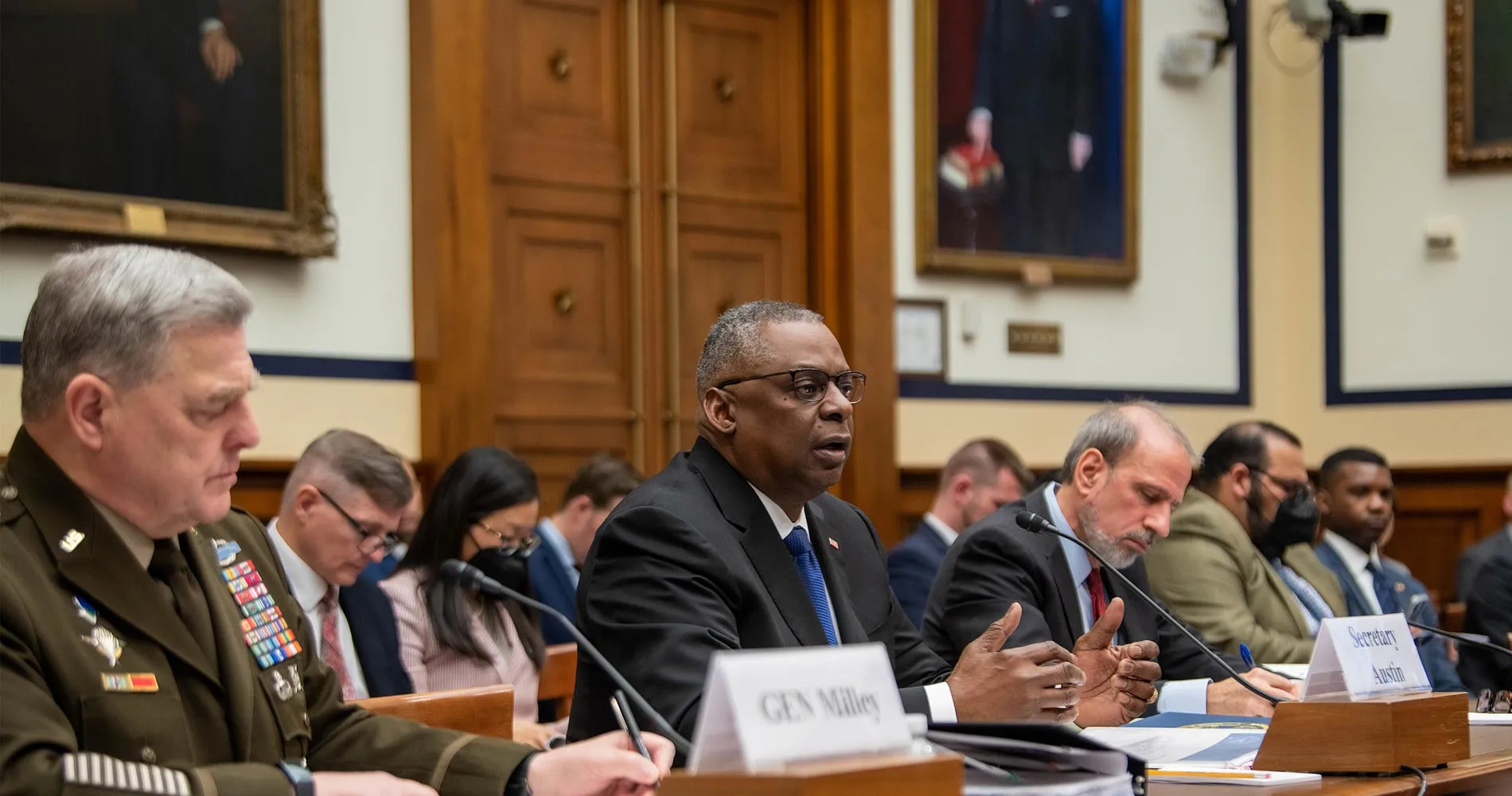The US Department of Defense/Pentagon has consistently failed to meet the standards set for them since the 1990s. The latest auditing failure shows no improvement and indicate a broad range of internal problems prohibiting any positive development.
Reed McIntire
3 January 2024
Chinese version | French version | German version
The US military once again has failed to account for all of its huge budget during an annual audit. As revealed in November 2023, the Pentagon is unable to locate parts of its nearly USD 1 trillion budget for the sixth time since 2018.
The annual audits of the US Department of Defense (DOD) began in 2017, in order to reduce government spending. Typically, this is an in-house process done by the Pentagon Inspector General. Despite these measures, the Pentagon has not passed its audit, which it has been legally required to do since the program’s inception. Former Pentagon Comptroller Thomas Harker set 2027 as the deadline for the Pentagon’s ability to pass an audit. Yet there are few signs of progress.
Chief Financial Officer for the Department of Defense and Undersecretary of Defense Comptroller, Michael McCord, insisted in a press briefing that the military is making progress. “I want to highlight that while we still have much work to do, our work on the audit over the last few years has yielded significant benefits to the department”, he said. “The substantial progress made by the services shows that by naming DOD-wide priority areas, concentrating efforts and setting and monitoring metrics, we are collectively having a meaningful effect.” McCord went on to highlight increased DOD abilities to support US operations and allies such as Ukraine or Israel as part of the auditing process’ benefits.
Despite the insistence of its leadership, the US military’s negligence is beginning to worry some. In response to last year’s audit failure, US Congressman Pete Sessions and James Comer launched an official probe into Pentagon spending. Also, Senators Bernie Sanders, Elizabeth Warren, Rand Paul, Ron Wyden, and others began a push for an independent auditing of the Department of Defense.
Despite these financial problems, the Pentagon’s budget continues to increase. President Biden has requested a groundbreaking USD 886 billion Pentagon budget for 2024. House Republicans wished to add another USD 80 billion on top of that amount.
Among its various endeavors, the Pentagon is notorious for overspending on its weapons, equipment and R&D. The F-35 fighter jet program ran USD 165 billion over budget. Additionally, the Navy plans on expanding its shipbuilding between 2023 and 2052, with estimated costs of USD 27 billion annually. However, other estimates point to a severe cost underestimate, with the costs more likely reaching USD 31 billion annually. The faulty financial estimates of the Pentagon are unsurprising to many, especially to those familiar with the department’s internal systems.
With the Pentagon under scrutiny for its failed V-22 Osprey program after multiple deadly crashes and the price of some drones literally worth their weight in gold, these auditing failures highlight the Pentagon’s lack of budgetary control and oversight. Currently, the entire Osprey fleet is grounded, affecting nearly 500 military aircraft (Air Force 54 Ospreys, Navy 48 and Marine Corps 360). The cost per Osprey is roughly USD 84 million. In 2021 the Pentagon approved a USD 6.5 billion five-year program for 99 additional Ospreys.
The Government Accountability Office (GAO) has consistently placed the Pentagon and DOD’s financial systems, weapon acquisitions, and business systems modernization as “high-risk” since 1995. In its report, GAO identified subpar monitoring, a lack of actionable plans, a lack of capacity to effect changes, and a lack of demonstrated progress. The area of business systems modernization was particularly criticized as not meeting any of GAO’s standards. In part, this poor oversight has likely caused the DOD and Pentagon to fail auditing standards.
GAO has repeatedly made recommendations to the DOD to correct these issues, including routine examinations of systems and data management. However, unless the Pentagon gets serious about these recommendations, change is unlikely.
The question then becomes, how long will the US Congress and Government continue to accept these auditing failures before acting to show that the Pentagon is not above the law.







